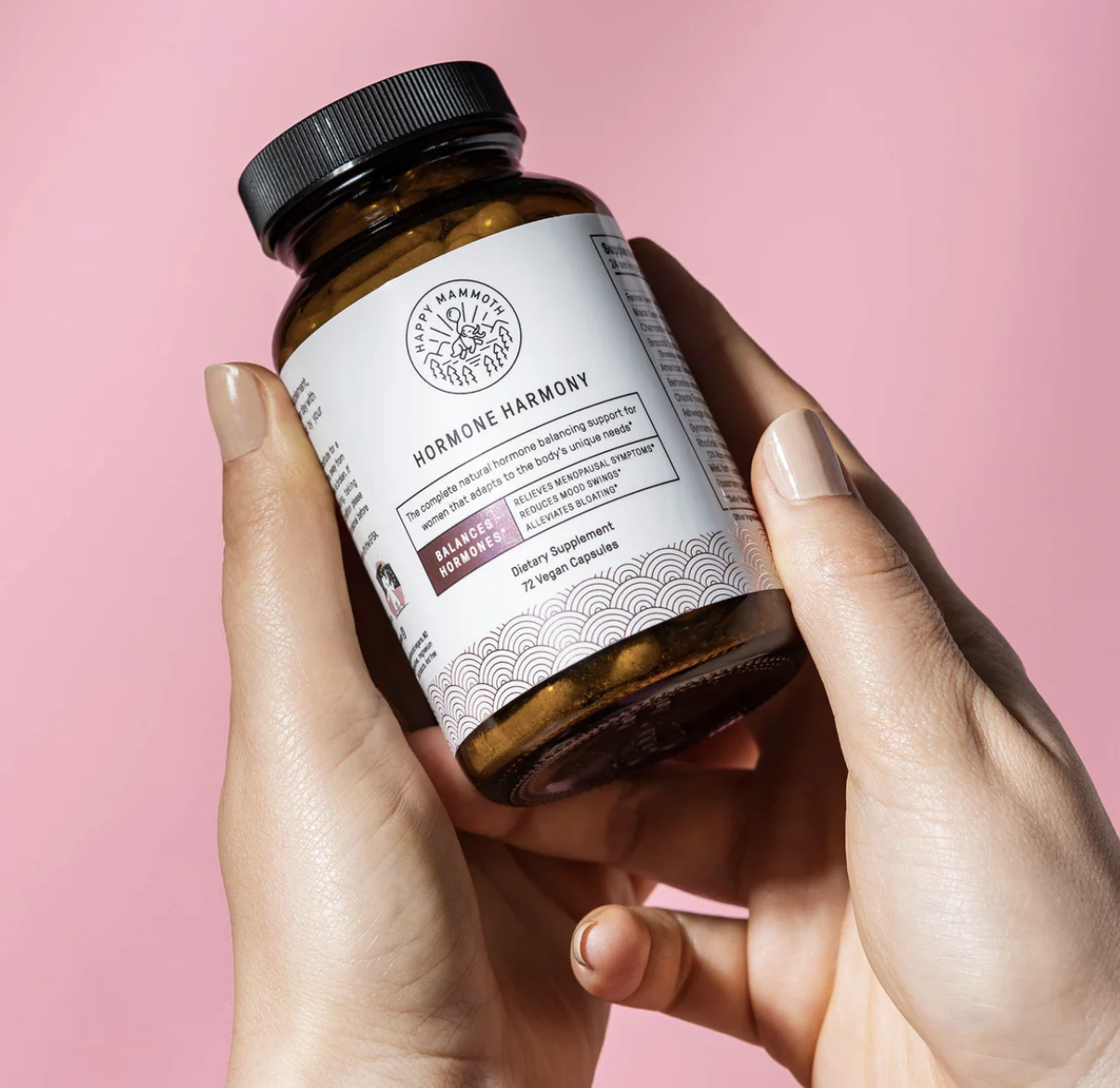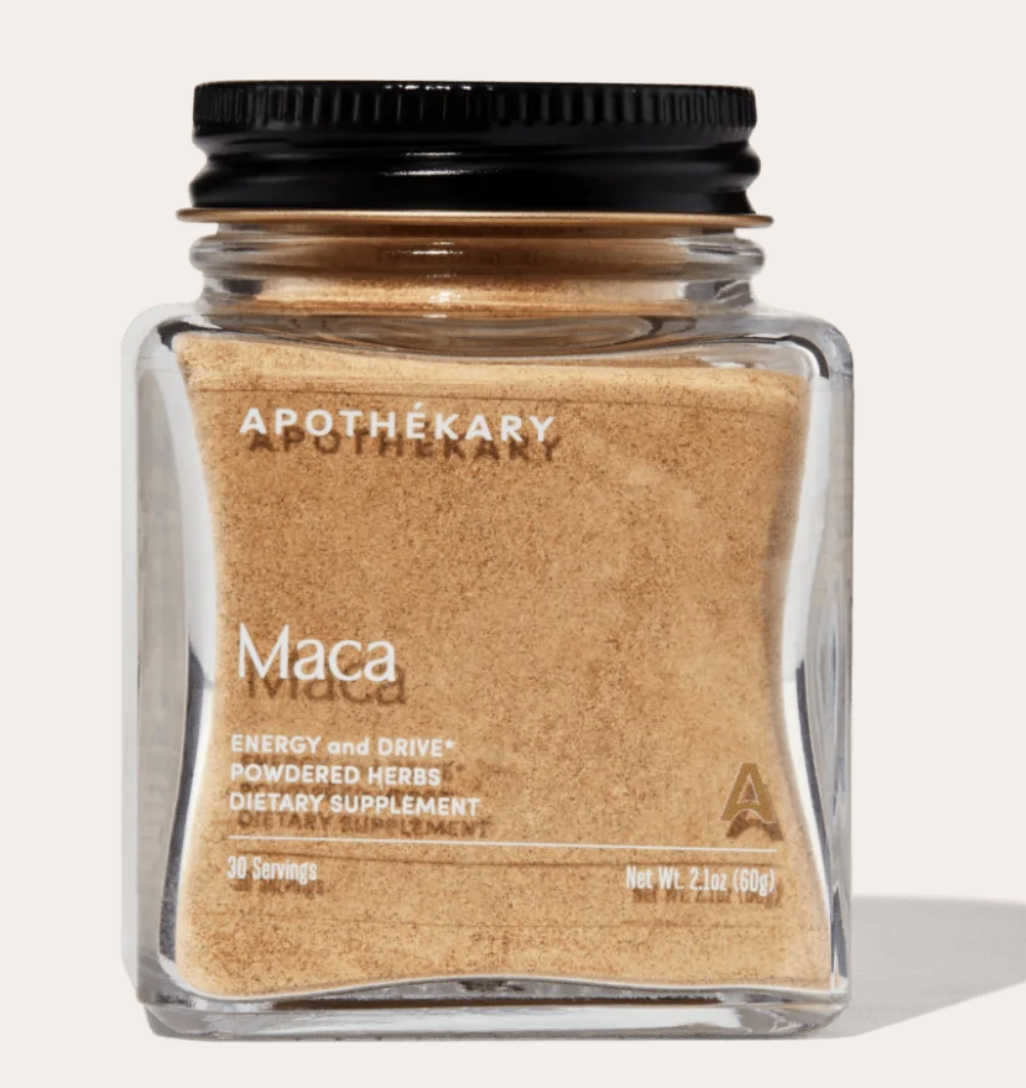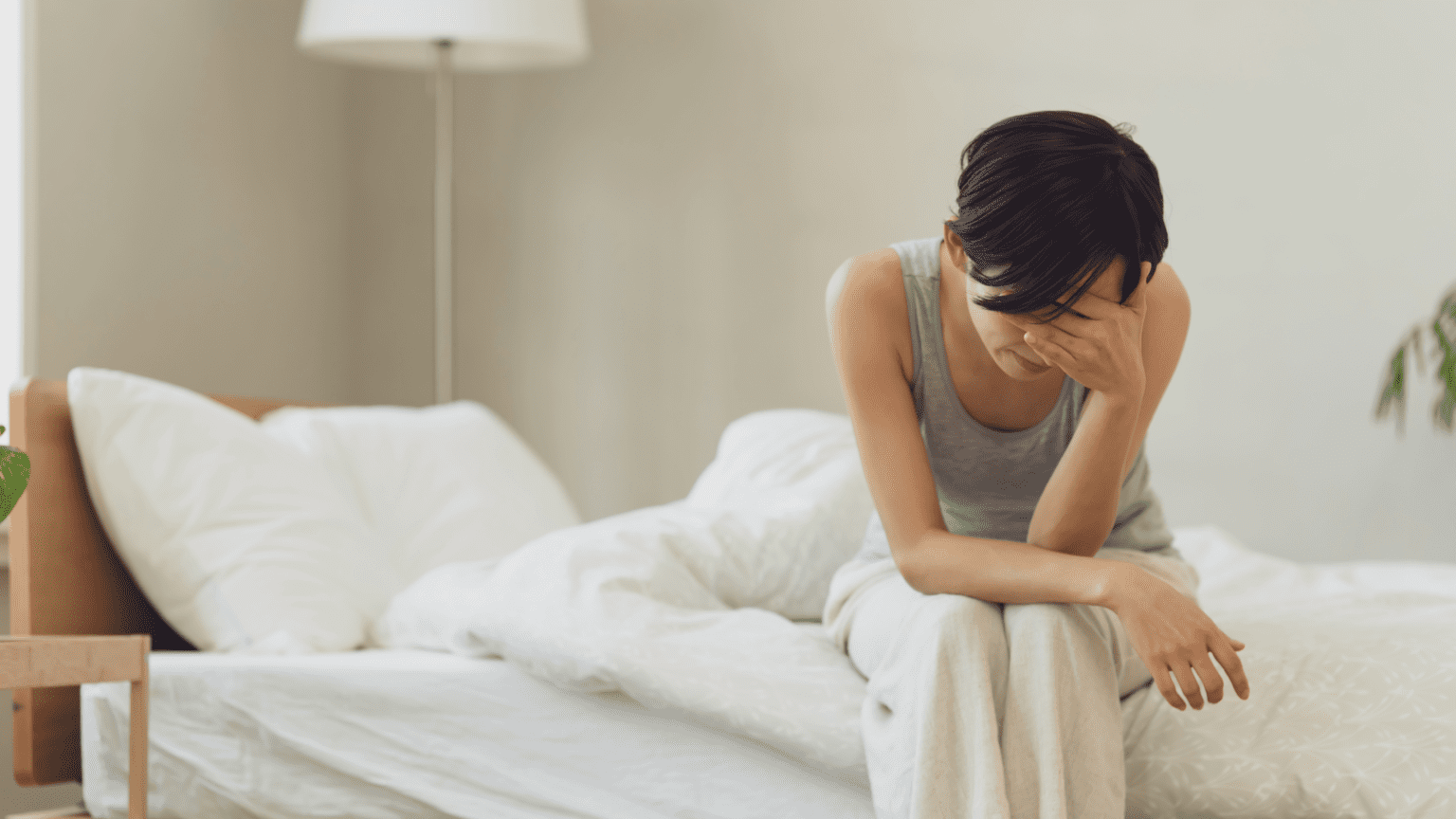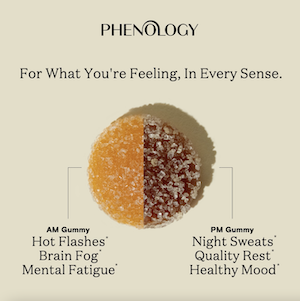If you are experiencing menopause, you may be familiar with the common symptoms of hot flashes, night sweats, and mood changes. However, you may also experience feelings of anxiety, which can be worse in the morning. Menopause anxiety can manifest as physical symptoms such as rapid heartbeat, high anxiety, and panic attacks, as well as emotional symptoms such as mood disorders and stress levels. These symptoms can be challenging to manage, but there are lifestyle and therapeutic interventions that may help.
Understanding menopause and anxiety is essential to finding effective treatment options. Hormonal changes during menopause can cause anxiety disorder, and perimenopausal symptoms can lead to severe anxiety. Hormone replacement therapy may be a medical treatment option to consider. However, regular exercise and relaxation techniques such as deep breaths can also help reduce anxiety levels.
Morning anxiety during menopause can be particularly challenging to manage. However, there are support and resources available to help you cope. Consulting with a menopause specialist can help you understand your options and develop a treatment plan that works for you. By taking steps to manage your menopause anxiety, you can improve your quality of life and reduce the impact of this common symptom.
Key Takeaways
- Menopause can cause feelings of anxiety, which can be worse in the morning.
- Lifestyle and therapeutic interventions such as regular exercise and relaxation techniques can help manage menopause anxiety.
- Consulting with a menopause specialist can help you develop a treatment plan that works for you.
Understanding Menopause and Anxiety
One of the primary reasons for anxiety during menopause is hormonal changes. As your body produces less estrogen, it can lead to mood swings, hot flashes, and night sweats. Estrogen plays a crucial role in regulating mood, and its decline can cause an increase in anxiety levels. Also, low estrogen levels can also lead to physical symptoms such as rapid heartbeat, high anxiety, and panic attacks.

Daily Balance
Multi-symptom relief gummies made with hormone-free, naturally powerful ingredients that are clinically shown to reduce hot flashes by 50%.
Symptoms of Menopause-Related Anxiety
Menopause-related anxiety can manifest in various ways, including feelings of anxiety, panic attacks, and physical symptoms such as hot flashes and night sweats. Additionally, mood swings and emotional symptoms such as irritability and depression can also be common during menopause. If you’re experiencing severe anxiety or other mental health symptoms during menopause, it’s essential to seek help from a menopause specialist who can provide you with treatment options such as hormone replacement therapy or relaxation techniques.
Menopause can be a challenging time for many women due to the hormonal changes that occur in the body. If you’re experiencing anxiety or other symptoms of menopause, it’s essential to seek help from a healthcare professional who can provide you with the necessary treatment options to manage your symptoms effectively.
Morning Anxiety During Menopause
If you are experiencing feelings of anxiety in the morning, you are not alone. Morning anxiety is a common symptom of menopause and perimenopause. It can be characterized by feelings of unease, nervousness, or panic that occur upon waking up. Some women may also experience physical symptoms such as rapid heartbeat or sweating.
Causes of Morning Anxiety
Morning anxiety during menopause can be caused by a variety of factors, including changes in hormone levels. Estrogen helps regulate cortisol production, which is your body’s main stress hormone. As estrogen levels decrease during menopause, cortisol levels can become elevated, leading to feelings of anxiety.
Sleep disturbances can also contribute to morning anxiety. Menopause can cause hot flashes and night sweats, which can disrupt sleep and lead to feelings of fatigue and stress. Lack of sleep can also affect your mood and increase your stress levels.
Managing Morning Anxiety
There are several ways to manage morning anxiety during menopause. Regular exercise can help reduce stress and improve mood. Deep breathing and relaxation techniques such as yoga or meditation can also help reduce anxiety and promote relaxation.
Managing Morning Anxiety in Menopause
- Establish a Calming Morning Routine: Start the day with activities that promote relaxation, such as meditation, light exercise, or journaling.
- Improve Sleep Hygiene: Aim for a comfortable sleeping environment and a consistent bedtime routine. Avoid caffeine and electronics before bed to improve sleep quality.
- Balanced Diet and Hydration: A balanced diet rich in vitamins and minerals can help regulate hormones. Staying hydrated is also crucial.
- Mindfulness and Relaxation Techniques: Practices like yoga, mindfulness meditation, or deep breathing exercises can reduce anxiety levels.
- Seek Professional Help: If anxiety becomes overwhelming, it’s important to seek advice from a healthcare provider. They may suggest therapy, medication, or hormone replacement therapy (HRT) as part of the treatment plan.
If your morning anxiety is severe or interfering with your daily life, it may be helpful to seek treatment from a menopause specialist. Hormone replacement therapy (HRT) may be recommended to help regulate hormone levels and reduce symptoms of anxiety.
Morning anxiety is a common symptom of menopause and perimenopause. It can be caused by changes in hormone levels and sleep disturbances. Managing morning anxiety may involve regular exercise, relaxation techniques, and seeking treatment from a menopause specialist if necessary.
Lifestyle and Therapeutic Interventions
If you’re experiencing anxiety during menopause, there are some lifestyle and therapeutic interventions that can help you manage your symptoms.
Regular Exercise and Diet
Regular exercise and a healthy diet can help reduce anxiety and other menopausal symptoms. It’s recommended that you get at least 30 minutes of moderate exercise most days of the week.
In addition to exercise, eating a healthy diet can also help manage menopausal symptoms. A diet rich in fruits, vegetables, and lean proteins can help regulate hormone levels and reduce anxiety. It’s also important to avoid foods that can trigger anxiety, such as caffeine, alcohol, and processed foods.
Relaxation Techniques and Mindfulness
Relaxation techniques and mindfulness can also help manage anxiety during menopause. Deep breathing, meditation, and yoga are all effective relaxation techniques that can help reduce stress and anxiety. Mindfulness-based meditation has been shown to be particularly effective in reducing anxiety and improving overall mental health.
Other lifestyle changes that can help reduce anxiety include getting enough sleep, reducing stress levels, and avoiding triggers that can cause anxiety. If your anxiety is severe, you may want to consider talking to a menopause specialist about hormone replacement therapy or other treatment options.
Menopause can be a challenging time, but there are many lifestyle and therapeutic interventions that can help manage anxiety and other symptoms. By incorporating regular exercise, a healthy diet, and relaxation techniques into your daily routine, you can reduce your anxiety levels and improve your overall quality of life.
Medical Treatments and Therapies
If you are experiencing severe anxiety and other symptoms of menopause, there are a variety of medical treatments and therapies that can help alleviate your symptoms. Here are some options to consider:
Hormone Replacement Therapy
Hormone replacement therapy (HRT) is a common treatment for menopause symptoms, including anxiety. HRT involves taking estrogen and/or progesterone to replace the hormones that your body is no longer producing after menopause. This can help regulate hormone levels, which can in turn help alleviate anxiety and other symptoms.

Hormone Happy
Contains a powerful blend of plant extracts shown to relieve symptoms of menopause.
However, HRT is not without risks. It has been associated with an increased risk of breast cancer, heart disease, and stroke. Talk to your doctor about whether HRT is right for you and what the potential risks and benefits are.
Alternative Medications and Supplements
If you are looking for alternative treatments for menopause anxiety, there are a variety of medications and supplements that may help. Some antidepressants, such as selective serotonin reuptake inhibitors (SSRIs), have been shown to be effective in treating anxiety in menopausal women. However, these medications can also have side effects, so it’s important to talk to your doctor about whether they are right for you.
There are also a variety of supplements that may help alleviate anxiety symptoms. Black cohosh is a popular supplement that has been shown to reduce hot flashes and other menopause symptoms. Other supplements, such as omega-3 fatty acids and magnesium, may also help alleviate anxiety symptoms.

Apothekary Maca
Maca’s nutrient profile is impressive. It contains ample amounts of copper, vitamin C, and potassium–all essential nutrients for mood and energy.
Cognitive Behavioral Therapy
Cognitive behavioral therapy (CBT) is a type of talk therapy that can be effective in treating anxiety and other mood disorders. CBT focuses on identifying and changing negative thought patterns and behaviors that contribute to anxiety. It can also teach you relaxation techniques, such as deep breathing and progressive muscle relaxation, which can help reduce anxiety symptoms.
It’s important to practice good self-care and talk to your doctor about any symptoms you are experiencing. Your doctor may refer you to a menopause specialist or other mental health professional who can help you manage your symptoms and improve your quality of life.
Support and Resources
Seeking Professional Help
If you are experiencing severe anxiety or panic attacks, it is important to seek help from a mental health professional or a menopause specialist. They can help you understand the hormonal changes that are causing your anxiety and provide you with treatment options. Your health professional may recommend hormone replacement therapy or other medications to help manage your symptoms.
Therapy can also be a helpful tool in managing anxiety during menopause. Cognitive-behavioral therapy (CBT) can help you identify negative thought patterns and develop coping strategies.
Building a Support System
Building a support system can also be helpful in managing anxiety during menopause. Consider joining a support group for women going through similar experiences. Talking to friends and family members about your symptoms can also provide emotional support and help you feel less isolated.
In addition, making lifestyle changes such as reducing caffeine and alcohol intake, getting enough sleep, and practicing stress management techniques can also help manage anxiety and other menopause symptoms.
Remember, you are not alone in experiencing anxiety and other symptoms during menopause. With the right support and resources, you can manage your symptoms and improve your overall quality of life.











